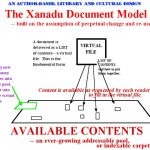“In manuscript and early print, reading was a social activity.” (Ong)
It was difficult for me to understand how in the early age of writing, reading was so inextricably connected with orality. In a literate culture we see reading as a purely individual activity. When learning to read we are instructed not to read along aloud, or even move our mouths; to do it silently. Ong predicted I would feel this way, when he also said, “fully literate persons can only with great difficulty imagine what a primary oral culture is like, that is, a culture with no knowledge whatsoever of writing or even of the possibility of writing”, because writing has so transformed our consciousness. What is orality now? It seems to me to have a pretty low value. In a literate culture it is impossible for us to have great orators, as in ancient times therefor we can have no relatable experience. I recall that was struck by Phaedrus being so excited to hear another speech, as I cannot image listening to a speech that I cannot access later, in writing. Bolter’s comment that “The oral poet is a writer, who writes exclusively in the minds of his or her audience” I think this might give us a tiny window as to the experience of an primary oral culture from a literate culture perspective.
The concept of an oral state of mind finally (but still only marginally) hit home with me when, after pondering it a while, I thought about my own name, or the proper name of a loved one – suddenly I felt the full weight of a word that is spoken, especially by a loved one. A name is so completely the embodiment of that person and all the accompanying concepts and emotions. I thought, if there were no written word maybe all spoken words had that measure of substance.
“Orality knows no charts or figures.” (Ong)
In a culture that is only oral, remembered truth was always up to date since irrelevant matters were dropped form consciousness. It is impossible for me to imagine the past and present not being itemized in any way or having dates attached to imbue meaning – that in oral cultures the past is always felt as alive and resonant. In these terms, even current law seems outdated because of its inflexibility. Maybe we can take something from this?
I thought about which means more to me, the oral or written word, and it would have to be written (although not specifically print). For one thing, I spend a lot of my work day applying the standards of accreditation to medical education programs and when something is not up to the written standard (see the new accreditation policy I just wrote!), it does not qualify for accreditation. You can image the endless debates that would ensure if accreditation was only based on orality because today what is said seems so impermanent, alterable and deniable (even with proof, apparently). I know my entire office, and probably much of the working world, could not function without an official text to stand on as ‘proof’ of the standards. Is it a function of the literate or print aspect of our society that I feel that the written word provides more “proof”? Why do I feel it necessary to “prove” anything for that matter? But the need to do so feels ingrained. I feel it must be one of the by-products of living in a literate society. What do you think?
References
Bolter, Jay David. (2001). Writing Space: Computers, Hypertext, and the Remediation of Print. Mahwah, NJ: Lawrence Erlbaum Associates.
Ong, Walter J. Orality and Literacy: The Technologizing of the Word, Routledge Falmer, 2002. ProQuest Ebook Central. Retrieved from http://ebookcentral.proquest.com/lib/ubc/detail.action?docID=181644 .






Stephanie Kwok
July 1, 2018 — 12:01 pm
Hi Joanna,
Ong’s article was a difficult piece for me to understand also, but I feel as if you’ve hit the nail on the head by quoting Ong, that, “fully literate persons can only with great difficulty imagine what a primary oral culture is like” (1982). I am unable to even begin to imagine a world without written text. Especially in this information-saturated generation and culture, I am wholly dependent on the practice of reading and writing for simple daily tasks such as remembering what I need to do tomorrow, phoning a friend, or navigating where I need to go.
In discussing the transition from print to digital media, Bolter believes we should always ask key questions such as “How does this writing space refashion its predecessor? How does it claim to improve on print’s ability to make our thoughts visible and to constitute the lines of communication for our society?” (2001, p. 14). Likewise, we should ask how transitioning to a literacy-based culture refashioned the previous oral culture. Has it improved society’s modes of communication? And if so, how? Ong’s answer is that, “[w]riting had reconstituted the originally oral, spoken word in visual space. Print embedded the word in space more definitively.” (Ong, 1982, p. 121). By refashioning the way in which we organize and store ideas, from oral memory to physical writing in public space, we have expanded the sheer amount of data and information we can store and process as a society. You mentioned that in oral culture, “remembered truth was always up to date since irrelevant matters were dropped from consciousness”, but nowadays it is difficult to determine what constitutes as irrelevant, as well as who makes those important decisions for the rest of society! Needless to say, I believe that the shift from orality to literacy was brought upon by the need to record, communicate, and share knowledge amongst the growing population at the time.
Bolter, Jay David. (2001). Writing space: Computers, hypertext, and the remediation of print [2nd edition]. Mahwah, NJ: Lawrence Erlbaum.
Ong, Walter. (1982.) Orality and Literacy. Chapters 4 and 5 (pp. 117-155).